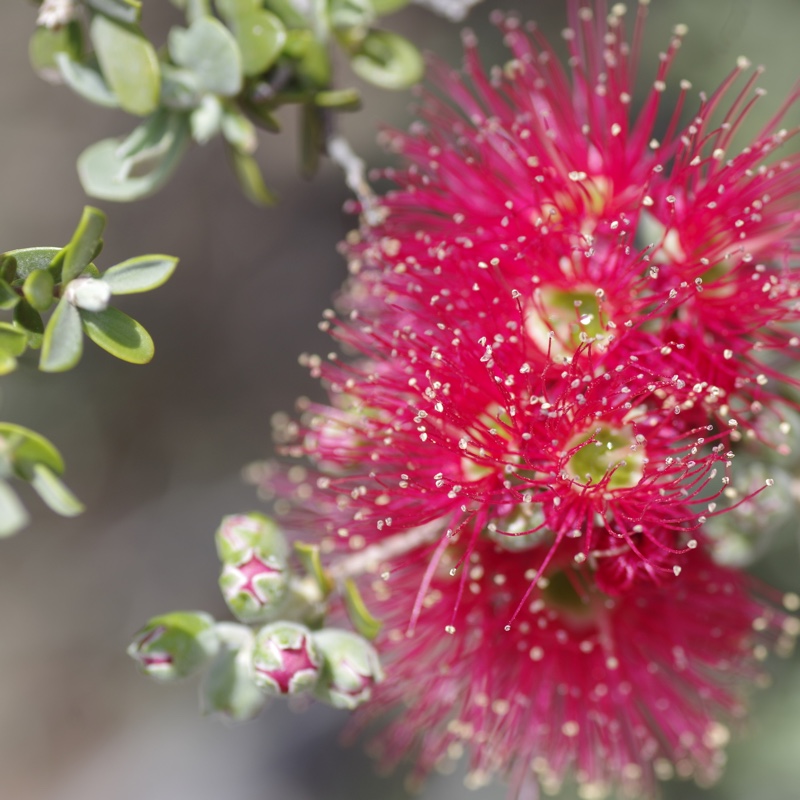
Melaleuca Elliptica
Granite Bottlebrush
Melaleuca is an evergreen flowering shrub that usually flowers in Spring or early Summer. They are commonly known as Paperbark, or Honey Myrtle. 'Granite Bottlebrush' is a shrub to 4m high with papery bark. Red bottlebrush like flowers occur winter and Spring through to mid Summer. Grows in sandy soils or on granite outcrops.
Contributed by @ranster
-
Full sun
-
Very little water
-
Not Frost hardy
-
Moist and free draining
Common name
Granite Bottlebrush
Latin name
Melaleuca Elliptica
type
Evergreen Shrub
family
Myrtaceae
ph
5.5 - 7.3 Acid - Neutral
Plant & bloom calendar
-
Best time to plant
-
When the plant will bloom
full grown dimensions
 2.50 M
4.00 M
2.50 M
4.00 M
Melaleuca Elliptica
Melaleuca is an evergreen flowering shrub that usually flowers in Spring or early Summer. They are commonly known as Paperbark, or Honey Myrtle. 'Granite Bottlebrush' is a shrub to 4m high with papery bark. Red bottlebrush like flowers occur winter and Spring through to mid Summer. Grows in sandy soils or on granite outcrops.
Flowering
From Late Spring TO Late Summer
Most varieties of melaleuca flower in late Spring and Summer
Planting
From Early Spring TO Mid Spring
Plant melaleuca in free-draining soil, in a sunny position. If you live in an area where frosts occur, it is best to plant the shrub in a pot, so that it can be moved to somewhere frost-free in Winter, or grow in a conservatory.
Propagating by seed
From Early Spring TO Early Spring
Fill a pot, seed tray, or modular tray, with proprietary seed-sowing compost (John Innes Seed for example), or use 50% multi-purpose compost mixed with 50% perlite or coarse grit. Firm the compost with your fingers, or with a pre-cut firming board then water well, but allowing any excess to drain. Sow the seeds thinly, one or two per module (depending on the size of the modules).Cover seeds with sieved compost or vermiculite. Label, with variety and date sown Prevent pots from drying out by covering with an inflated polythene bag secured with an elastic band, or with a suitable cloche, or sheet of plastic or glass
Propagating by semi-hardwood cuttings
From Late Summer TO Early Winter
Semi hard wood cuttings are taken from the current years growth from late summer to mid autumn. The bottom of the cuttings is hard and soft on the top. With a sharp knife take a cutting of about 14cms, remove lowest leaves, dip end into rooting hormone, and place round the edge of a pot filled with a suitable compost, water well. They must remain moist until rooted. Place under glass but in semi shade.








